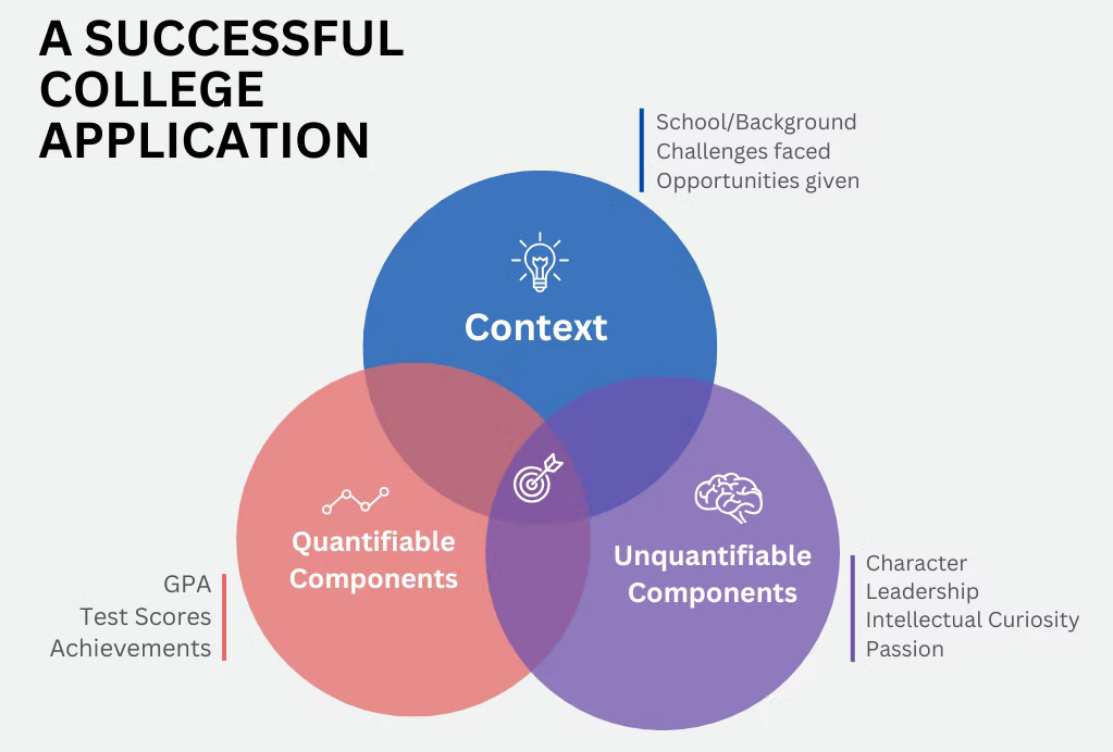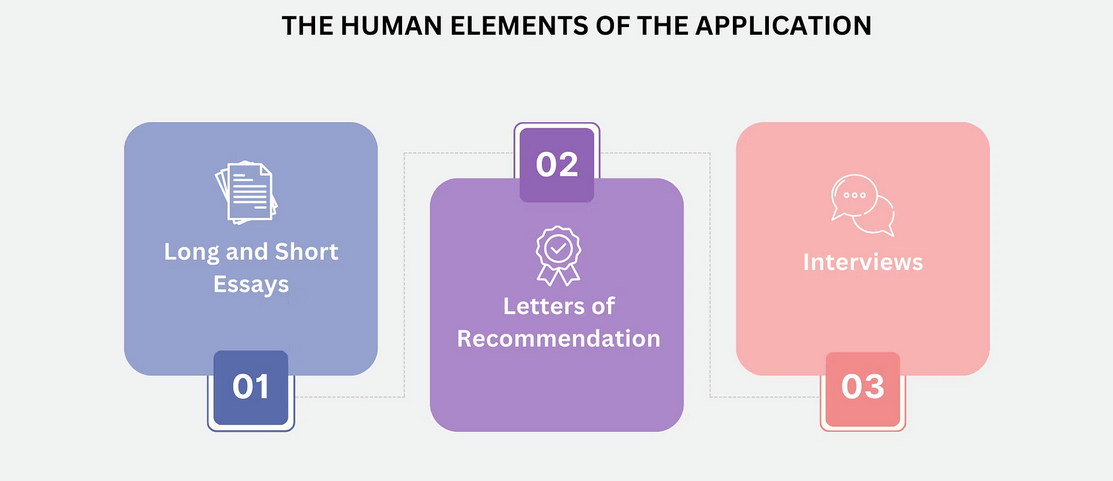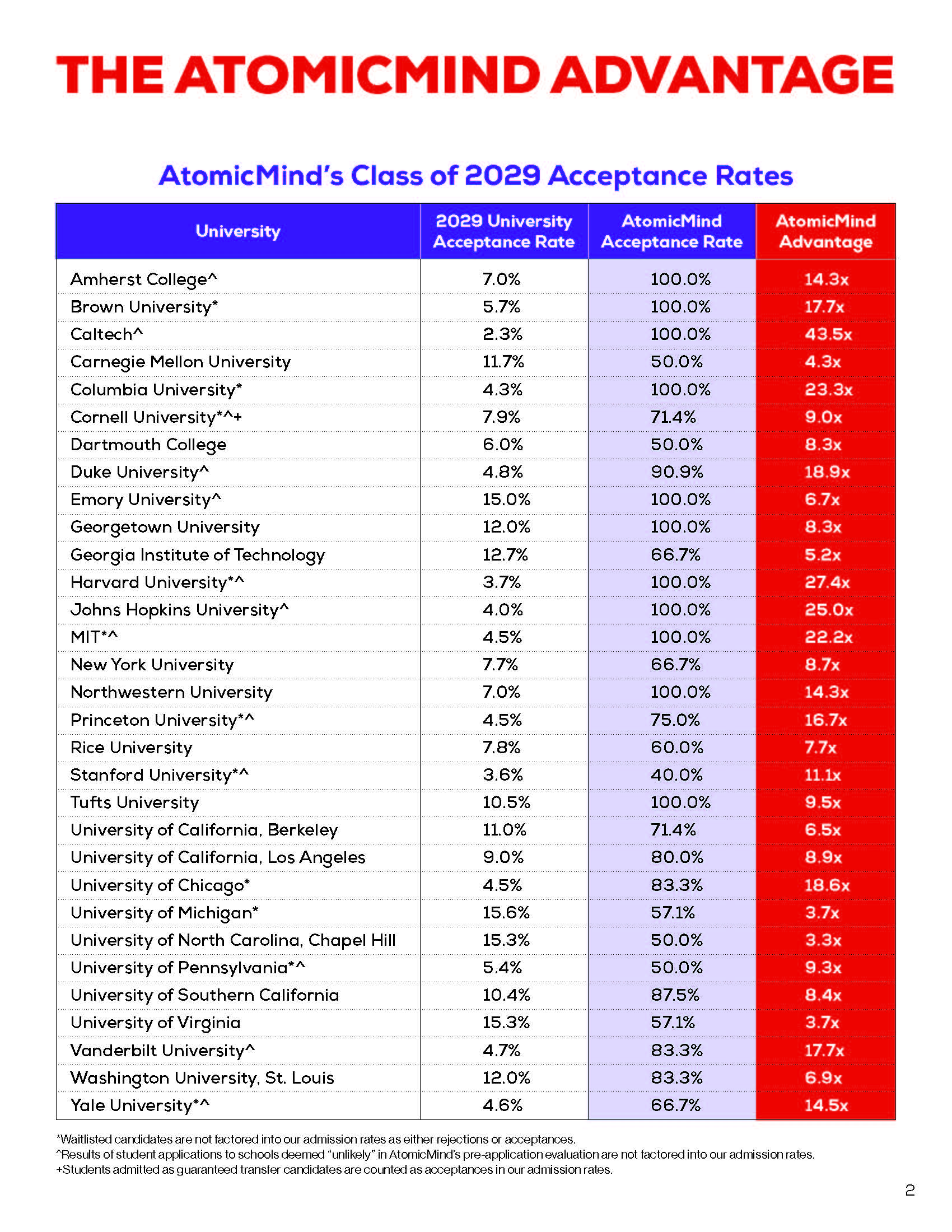How to Get Into an Ivy League College
Every year, high-achieving students and their families begin the college admissions process with a spreadsheet: GPA, test scores, AP classes, volunteer hours, awards. If it can be counted, it goes on the list.
But as experienced admissions advisors—and former admissions officers—know well, these numbers only tell a small part of the story.
In fact, many of the most important factors in a college application are harder to quantify. Context, character, contribution—these are the elements that can’t always be measured but carry real weight in a selective admissions process.
So here’s the truth from a company whose literal job is to guide students to gain admission to their dream schools: not all things you can count, in other words, measure, will count; and even more important, not all things that count can be counted!

Why Context Is Critical in College Admissions
Colleges don’t evaluate students in a vacuum. They evaluate students in context. That context includes the school you attend, the community you live in, your family responsibilities, access to opportunities, and so much more. And this is why admissions tends to be regional — it’s a lot easier to compare two students who come from the same place, given that they most likely have had access to similar opportunities. The world is vast and students everywhere have extremely varied profiles in terms of what they can bring to the table.
Did you have to work a part-time job to support your family? Did you create opportunities where none existed? Did you take the most rigorous coursework available to you? That context changes how admissions officers read every number on your application. The colleges are determining what head winds or tail winds you may have had and how you made the most of your own individual circumstances.
These differences in context make it impossible to reduce a college application to a quantifiable number and rank applicants “objectively.” Thus, the holistic application.
How Much Do GPA and Test Scores Matter?
That said, we don’t want to give you the wrong idea. Of course, numbers do matter. Lots of parts of any application are quantifiable and are therefore reduced to numbers and scores in an admissions office: your transcript, your test scores, your course rigor, even your extracurriculars. But numbers don’t tell the whole story and they are generally simply an entry point to a stage that will warrant future consideration – in other words, having a strong GPA and test scores relative to one’s peers is mere table stakes. That doesn’t mean, however, that the very top academicians are the ones who will get in! How often do we hear: “But he/she had perfect grades and scores and didn’t get in anywhere!” There is an explanation: After hitting a certain bar, it’s the less measurable qualities that make students truly “pop.”
Admissions officers are not only trying to predict future success. They’re asking:
- What will this student bring to our community—now?
- What will this student take from this experience on our campus?
- What role will this student play in our classrooms, clubs, and culture?
This is why some of the most impactful parts of an application don’t show up on a resume.
Among them:
- Authentic intellectual curiosity: Are you someone who pursues learning for its own sake, not just to check a box?
- Initiative and impact: What have you done with the opportunities you’ve had—whether big or small?
- Resilience and growth: How have you responded to setbacks? What have you learned from them?
- Community-mindedness: Are you someone who contributes? Who builds things? Who lifts others up? Who is inspiring rather than merely impressive?
How Top Colleges Evaluate Personal Qualities

So how do admissions officers see these unquantifiable traits?
Not through test scores. Not through one’s GPA. But rather, in the human elements of the application.
- Long and short essays that reflect genuine curiosity, self-awareness, and growth
- Letters of recommendation that speak to character, contribution, and leadership
- Interviews that highlight interpersonal skills, reflection, and presence
The personal statement and supplemental essays are especially powerful. They give students the opportunity to connect the dots of their experiences—to show not just what they’ve done, but how they think. A student’s ability to reflect, to synthesize, to articulate meaning from their path: that’s what makes an impression. And this is precisely what distinguishes them from similar students coming from a similar context and perhaps with similar “numbers”—every student has their own, unique lived experience. Storytelling is paramount in bringing your application to life!
Meanwhile, teacher and counselor recommendations provide a different lens. They can affirm a student’s kindness, initiative, integrity, or quiet strength in ways a student might never write about themselves. By strategically choosing recommenders who will complement the strengths in the rest of the student’s application and by guiding the teachers in question to select examples that will reinforce the student’s essays, recommendations can be a surefire way to strengthen a college application.
Even alumni interviews—often seen as informal—offer insight into how a student shows up in conversation, how they think on their feet, and how they might engage with others on campus. These interviews are often treated as optional, but if you can have one, you should always say yes. This interview is a great opportunity for the university to confirm through an unbiased alumni volunteer that the student comes across in person the way he/she did in the application; on the other hand, the student gets to learn more about the school from someone who cares enough about it to volunteer their time in this way. The key is to aim for a mutually enjoyable conversation between the student and interviewer, which is key to getting yet another immeasurable on the plus column of your holistic review.
In short: these are the places where your story becomes more than just a list of accomplishments. They’re where admissions officers begin to see you in a way that has an opportunity to surprise and delight them!
What Do Parents of College Applicants Need to Know?
It’s natural for parents to fixate on the measurables. After all, these numbers are tangible and feel actionable. But the truth is, colleges don’t simply admit the students with the most APs or the highest SAT scores. They admit students who show they are a fit for their community—students who are thoughtful, engaged, self-aware, and ready to grow.
And this is what most parents know implicitly, but tend to overlook with college applications. Kids are so much more than just numbers, grades, and activities. Our children are human beings – with beating hearts, hopes, dreams, interests, ambitions, trials and tribulations, and unique personalities! – that will be considered in a simple 20 minute college admissions review. These intangibles can and do sway admissions decisions and should not be taken lightly.
At AtomicMind, we often work with students who don’t “look perfect” on paper. And yet, their stories, their values, and their initiative—make them shine.
Final Thoughts: What Ivy League Schools Are Really Looking For
In a competitive admissions landscape, the question isn’t just “What have you done?” It’s “Who are you?” Colleges are building communities of learners and contributors—not just statistics.
So yes, build a strong academic record. But also: Be reflective. Be intentional. Make choices that align with who you are and who you’re becoming.
Because not everything that counts can be counted. And not everything that’s counted… truly counts.
Want Help Showcasing What Truly Counts?
AtomicMind specializes in helping students punch above their weight class and go beyond the numbers. Their team of expert advisors—including former admissions officers—works closely with families to identify what matters most and how to build a unique and inspiring narrative, clearly and confidently!
Whether you’re a parent trying to understand how your child’s story will be read, or a student wondering how to make your values and personality shine, AtomicMind is here to help.
Show admissions officers not just what you’ve done—but who you are.

By The Crimson Brand Studio
